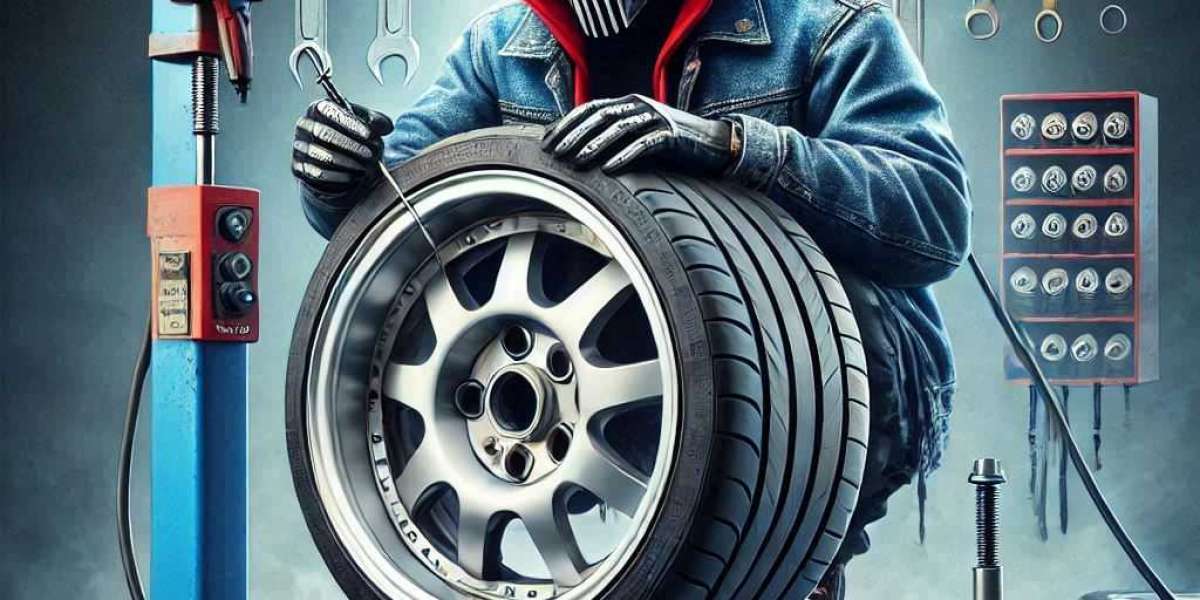Introduction
When it comes to maintaining your vehicle’s performance, one essential yet often overlooked component is wheel balancing. Whether you drive daily or work in the automotive industry, understanding the importance of wheel balancing can significantly impact your vehicle’s handling, comfort, and longevity. A high-quality wheel balancer ensures that your wheels are perfectly aligned, minimizing vibration, improving tire wear, and enhancing overall driving safety. In this article, we’ll delve into the world of wheel balancers, their benefits, how they work, and how to select the best one to improve your vehicle’s performance.
What Are Wheel Balancers?
Wheel balancers are specialized machines that are used to detect and correct imbalances in a vehicle’s wheels. Imbalances occur naturally during the manufacturing process or develop over time due to wear and tear, resulting in vibrations that can impact the vehicle’s ride quality. A wheel balancer works by spinning the wheel to identify any uneven distribution of weight, then suggesting corrective counterweights to restore the balance. The precision of modern wheel balancers plays a crucial role in ensuring that your wheels are aligned perfectly, leading to a smoother and safer ride.
How Do Wheel Balancers Work?
Modern wheel balancers utilize advanced technology to detect imbalances with high accuracy. These machines typically include sensors that monitor the wheel as it spins, measuring the force exerted by the wheel’s various components. As the wheel is rotated, the machine collects data and calculates the exact location and amount of weight required to balance the wheel. Once this information is processed, the wheel balancer indicates the proper placement of counterweights to ensure that the wheel is in perfect balance. Some of the latest wheel balancers are equipped with touch-screen displays and automated functions, making the entire process more efficient and user-friendly.
Why Wheel Balancing Matters
Wheel balancing is essential for many reasons, starting with its direct effect on the driving experience. When your wheels are out of balance, it can result in unwanted vibrations that affect everything from steering to ride comfort. These vibrations can also cause uneven tire wear, reducing the lifespan of your tires and increasing your overall maintenance costs. Additionally, unbalanced wheels create additional friction, which can lead to higher fuel consumption and unnecessary strain on your vehicle’s suspension and steering components. Proper wheel balancing ensures that all components function optimally, improving fuel efficiency, enhancing driving comfort, and extending the life of your vehicle.
Incorporating a wheel balancer into your vehicle maintenance routine helps ensure that the tires wear evenly, which means you won't need to replace them as often. This not only saves you money in the long run but also contributes to safer driving by ensuring that your vehicle handles as it was designed to.
Choosing the Right Wheel Balancer
Selecting the right wheel balancer depends on several factors, including the type of vehicle you're servicing, the volume of balancing tasks, and the desired level of precision. High-end machines offer more advanced features such as automated measurements and digital displays, allowing for faster and more accurate balancing. A wheel balancer with a user-friendly interface can save time, making it easier for technicians to work quickly without sacrificing quality.
The ideal wheel balancer should be capable of delivering precise readings with minimal error. Accuracy is crucial because even a slight imbalance can cause significant issues, such as vibrations, increased tire wear, and discomfort. Speed is another consideration, especially in a professional setting where time is of the essence. Machines that offer quick adjustments can help keep your workflow efficient.
Additionally, consider the compatibility of the wheel balancer with the types of wheels you'll be working with. Some balancers are designed for standard car tires, while others are better suited for heavy-duty or commercial wheels. Durability is also an important factor; the machine should be built to withstand heavy use while maintaining consistent performance.
The Different Types of Wheel Balancers
There are various types of wheel balancers available, each suited for different applications. Static balancers, for example, are typically manual devices that are more suitable for light-duty tasks and are often used in smaller workshops. Dynamic wheel balancers, on the other hand, are more advanced and are commonly found in professional automotive service centers. These machines are designed to measure imbalances while the wheel is in motion, offering a higher level of precision and speed. Computerized wheel balancers take this a step further, utilizing advanced algorithms and sensors to provide even greater accuracy and efficiency.
For professional technicians, the benefits of using a high-quality computerized or dynamic wheel balancer are substantial. These machines offer precision, speed, and ease of use, which can greatly enhance productivity. They also provide detailed data and diagnostics, helping to ensure that every wheel is perfectly balanced, leading to improved customer satisfaction and a more reliable service offering.
Why You Should Invest in a Quality Wheel Balancer
A quality wheel balancer is more than just a tool for correcting imbalances. It's an investment in your vehicle’s performance, safety, and long-term reliability. By ensuring that your wheels are always balanced, you not only improve ride quality but also prevent unnecessary wear and tear on your tires, suspension, and steering components. This can result in substantial savings on maintenance costs and fewer visits to the mechanic for repairs.
For those in the automotive service industry, having access to a top-tier wheel balancer can enhance your reputation and increase customer loyalty. Clients who experience smoother rides, less tire wear, and improved fuel efficiency are likely to return and recommend your services to others. Whether you're working in a garage or maintaining your personal vehicle, investing in the right wheel balancer can deliver impressive results that extend far beyond just a balanced wheel.
Maintaining Your Wheel Balancer
To ensure that your wheel balancer continues to perform at its best, regular maintenance is essential. Keep the machine clean, check for wear and tear on parts, and follow the manufacturer’s maintenance guidelines to ensure it remains accurate and reliable. Some wheel balancers may require periodic calibration to maintain their precision, so it’s important to stay on top of any service requirements to avoid inaccuracies in future balancing sessions.
Conclusion
Wheel balancing is a critical component of vehicle maintenance that affects everything from driving comfort to safety and fuel efficiency. A high-quality wheel balancer ensures that your wheels are perfectly balanced, extending the life of your tires and preventing unnecessary wear on your suspension. Investing in the right wheel balancer will not only improve your driving experience but also help you save money in the long run by preventing costly repairs and replacements. If you’re looking for a top-of-the-line wheel balancer, explore the cutting-edge solutions offered by Wheel Balancers. Take your vehicle’s performance to the next level with precision balancing that makes a difference.
Don’t wait until you notice uneven tire wear or uncomfortable vibrations. Regular wheel balancing is essential for maintaining the optimal performance and safety of your vehicle. To learn more about wheel balancing services and explore our full range of products, visit us today and ensure that your wheels are in perfect balance for the road ahead.








